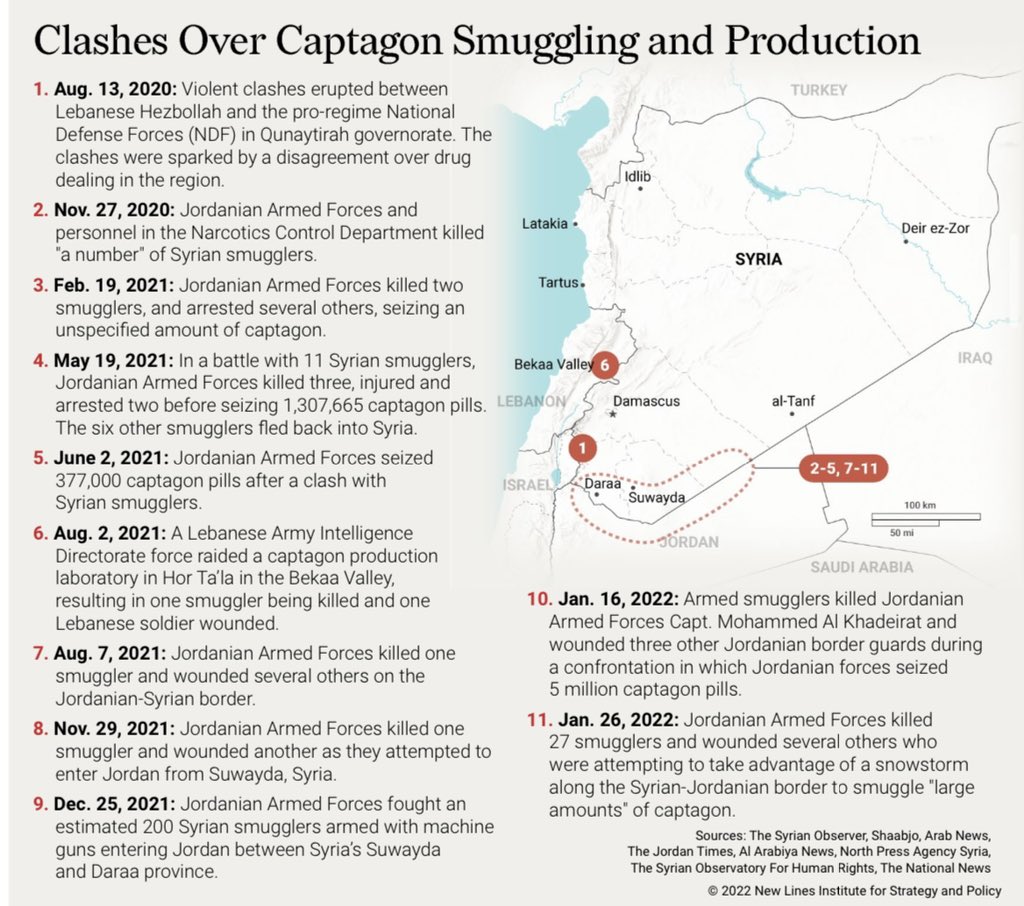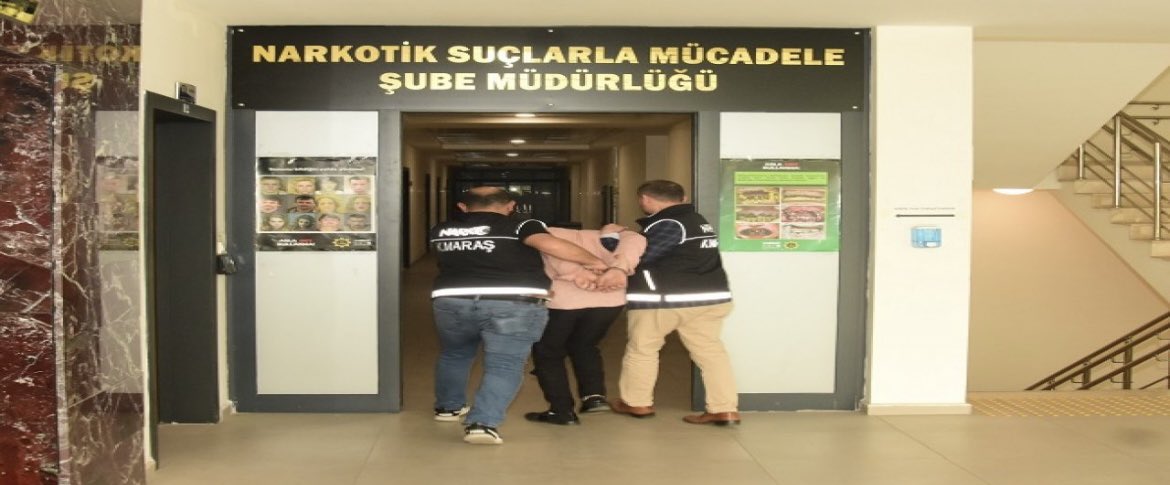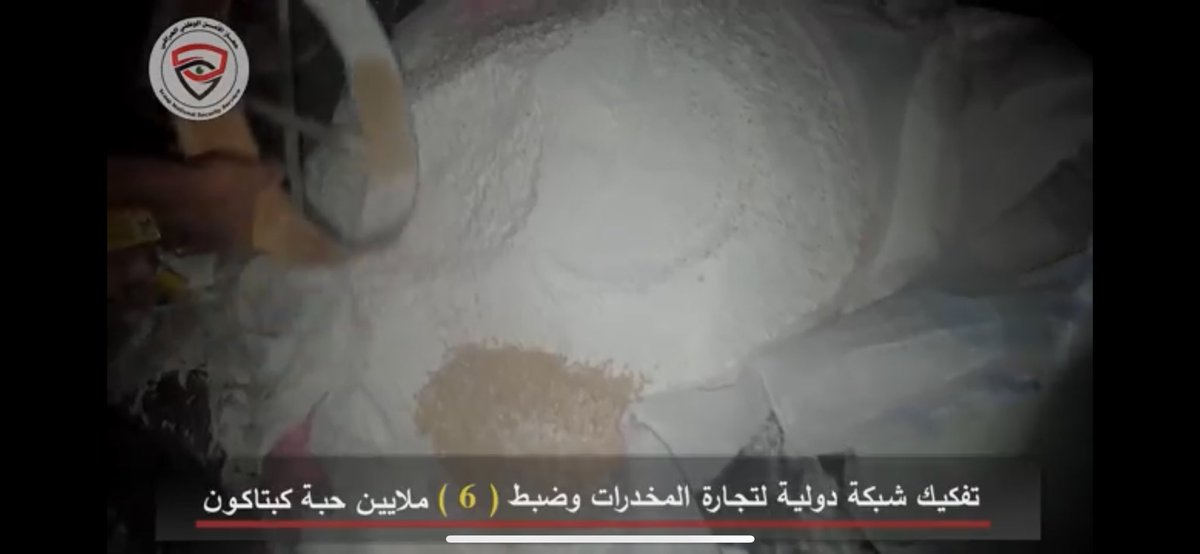After over 3 years researching the #captagon trade with @AlexSoderholm, I’m proud to announce that our report,“The #Captagon Threat: A Profile of Illicit Trade, Consumption, and Regional Realities,” published with @NewlinesInst.
A thread on its findings:
newlinesinstitute.org/terrorism/the-…
A thread on its findings:
newlinesinstitute.org/terrorism/the-…

The #captagon trade has mushroomed in size, scope, market value, and geopolitical significance.
newlinesinstitute.org/terrorism/the-…
newlinesinstitute.org/terrorism/the-…
In our three years of closely monitoring the #captagon trade, we’ve witnessed interceptions skyrocket from three and four-figure seizures into millions of pills. The frequency of smuggling efforts has also increased at an alarming rate.
newlinesinstitute.org/terrorism/the-…
newlinesinstitute.org/terrorism/the-…
This has transformed #captagon’s market value.
In 2017, it was estimated that the trade was worth nearly $1.8 billion total.
@CoarGlobal last year calculated the trade at around $3.46 billion.
In 2017, it was estimated that the trade was worth nearly $1.8 billion total.
@CoarGlobal last year calculated the trade at around $3.46 billion.
Tracking recorded interceptions and pill prices, this report identified the #captagon trade being worth over an estimated $5.7 billion in 2021 alone.
newlinesinstitute.org/terrorism/the-…
newlinesinstitute.org/terrorism/the-…
This is likely just the tip of the iceberg—this doesn’t represent unrecorded #captagon seizures and smuggled shipments that go undetected by law enforcement.
Notably, the trade has also expanded geographically.
While destination markets largely remain in the Persian Gulf, 2021 oversaw #captagon interdictions as far as Austria, Nigeria, and Malaysia.
newlinesinstitute.org/terrorism/the-…
While destination markets largely remain in the Persian Gulf, 2021 oversaw #captagon interdictions as far as Austria, Nigeria, and Malaysia.
newlinesinstitute.org/terrorism/the-…

We determine that the #captagon trade is no longer a market limited to Syria or the Levant region, but a challenge that spans the Mediterranean-Gulf zone and one that should be taken seriously by the US and regional governments.
newlinesinstitute.org/terrorism/the-…
newlinesinstitute.org/terrorism/the-…
We also highlight emerging smuggling patterns, particularly an uptick in trafficking from Syria through Jordan and Syria through Iraq.
While both are largely transit routes, there is risk for increased #captagon consumption and abuse.
newlinesinstitute.org/terrorism/the-…
While both are largely transit routes, there is risk for increased #captagon consumption and abuse.
newlinesinstitute.org/terrorism/the-…
One of the main drivers of a swelling #captagon trade has been increased production capacity in Syria and Lebanon.
Syria serves as the primary hub of industrial-sized #captagon production (as we evidence in this map) while Lebanon is host to smaller, more mobile captagon production facilities that often are occasionally transferred between the Lebanese-Syrian border.
newlinesinstitute.org/terrorism/the-…
newlinesinstitute.org/terrorism/the-…

Behind the trade is a plethora of state and non-state actors that participate in #captagon production, smuggling, and consumption at various stages.
newlinesinstitute.org/terrorism/the-…
newlinesinstitute.org/terrorism/the-…
We correct a long-held assertion that #captagon is exclusively associated with jihadist organizations like ISIS, identifying ministry-level complicity and participation in the trade from the Syrian government, Hezbollah, IRGC-aligned militias, warlords, and other actors.
It is clear, that the overwhelming bulk of industrial #captagon production is concentrated in regime-held areas in Syria such as Dara’a and Latakia.
newlinesinstitute.org/wp-content/upl…
newlinesinstitute.org/wp-content/upl…
We can assert this not only with evidence of large-scale production facilities in hollowed-out, former command centers, residences, hangars, factories, and warehouses, but also evidenced from smuggling products (citrus fruit, packaging, etc), and tracking seizures’ port of origin
The unraveling conditions in Syria and Lebanon fostered an environment for #captagon production to thrive.
newlinesinstitute.org/wp-content/upl…
newlinesinstitute.org/wp-content/upl…
And in return, the trade continues to fuel these power vacuums by padding actors with alternative revenue streams, emboldening malign behavior, and creating patronage networks that ultimately undermine the rule of law and human security.
newlinesinstitute.org/wp-content/upl…
newlinesinstitute.org/wp-content/upl…
It is also notable that some elements of insecurity related to the #captagon trade have spilled over into neighboring states.
In the case of Jordan and Lebanon, #captagon smugglers (many armed with advanced equipment) have engaged in fatal clashes with forces and have mounted new security concerns. 

The report raises a serious, emerging health concern in #captagon consumer markets in #Syria, #Lebanon, #Iraq, #SaudiArabia, and other countries were consumption is popular.
newlinesinstitute.org/wp-content/upl…
newlinesinstitute.org/wp-content/upl…
The #captagon trafficked and consumed today is not the Captagon® that originally surfaced on the licit pharmaceutical market, as @narcoexperto has pointed out.
Tests indicate it’s a completely different formula, lacking fenethylline and encompassing a series of cutting agents.
Tests indicate it’s a completely different formula, lacking fenethylline and encompassing a series of cutting agents.
In the report, we flag higher levels of amphetamine in #captagon and adulterants that can potentially harm consumers, such as:
-copper residue
-zinc
-allopurinol
-paracetamol
-diphenhydramine
- procaine
-ephedrine
-metronidazole
- (the list goes on)
newlinesinstitute.org/wp-content/upl…
-copper residue
-zinc
-allopurinol
-paracetamol
-diphenhydramine
- procaine
-ephedrine
-metronidazole
- (the list goes on)
newlinesinstitute.org/wp-content/upl…
So, with a #captagon trade that has fueled an uptick in border clashes, presented new health risks, and provided an economic lifeline for malign state and non-state actors—many of them US adversaries—how should the US and its partners approach this challenge?
We argue that the first step should be establishing a preliminary strategy, as proposed in H.R. 6265 (The #Captagon Act) that calls for an inter-agency process identifying ways the US can further disrupt the trade.
congress.gov/bill/117th-con…
congress.gov/bill/117th-con…
The report also calls for a regional mechanism and/or forum for states affected by the #captagon trade to exchange ideas, best practices, & intelligence to build a coordinated, proactive strategy to counter the trade’s implications.
newlinesinstitute.org/wp-content/upl…
newlinesinstitute.org/wp-content/upl…
In order to effectively counter this trade, the US and it’s partners will have to tackle this issue from both sides of supply and demand.
This will mean investing in law enforcement interdiction capacity as well as harm reduction, mental health, and rehabilitation services.
This will mean investing in law enforcement interdiction capacity as well as harm reduction, mental health, and rehabilitation services.
I want to conclude by saying that over years of research, this report could not have been done without my supportive team at @NewlinesInst, the former LSE IDPU…
…and regional analysts, illicit economies experts, and healthcare practitioners who were incredibly kind to share their insights and experiences such as @narcoexperto, @IBLarson, @diana_r7, @putintintin1 @QalaatM, @Charles_Lister, the team at @Skoun and many, many others.
I hope this report will not only identify research that’s left to be done as we seek a better picture of the trade, but also work that is needed at the policy level that enhance dialogue, coordination, and capacity to improve the lives of those adversely affected by captagon.
For the sake of simplicity, I’ll start adding to this thread with new seizures and updates on the #captagon trade:
238 kg (roughly 1,428,000 #captagon pills) seized at Jordan’s Jaber Customs Center today.
You can see that the pills were expertly hidden inside the body of the truck used to transport the drugs from Syria.
Photo credit: @AlghadNews
alghad.com/%d8%a5%d8%ad%d…
You can see that the pills were expertly hidden inside the body of the truck used to transport the drugs from Syria.
Photo credit: @AlghadNews
alghad.com/%d8%a5%d8%ad%d…

900,000 #captagon pills seized in Istanbul today.
https://twitter.com/doganburak29/status/1514173422577803266?s=20&t=p0BG-7QJTfZFwBf1Vp5ECA
Important report from @Adam_Lucente on how #captagon traffickers are adapting increasingly sophisticated smuggling tactics, using elevator parts and other industrial equipment to dodge interdiction.
al-monitor.com/originals/2022…
al-monitor.com/originals/2022…
Saudi Arabia’s Zakat seize 456,000 #captagon tablets hidden in elevator parts.
This is not smugglers’ first rodeo using machinery: trolley wheels, pizza ovens, dryer & washers have been used before.
3 Egyptians, 1 Syrian, and 2 Saudis arrested.
Photo: al-marsd.com/article/154655…

This is not smugglers’ first rodeo using machinery: trolley wheels, pizza ovens, dryer & washers have been used before.
3 Egyptians, 1 Syrian, and 2 Saudis arrested.
Photo: al-marsd.com/article/154655…


Another seizure of 141,831 #captagon pills today at Saudi Arabia’s Al-Haditha crossing along the border Jordan.
On the smaller side as far as seizures go, but notable sophistication in smuggling efforts with the use of olive oil containers.
#الكبتاغون
Photo credit: @SPAregions



On the smaller side as far as seizures go, but notable sophistication in smuggling efforts with the use of olive oil containers.
#الكبتاغون
Photo credit: @SPAregions




Saudi government released a video (we’ve seen a few like this before) showing sniffing dogs and X-ray machines were used in detection efforts.
The #captagon shipment was hidden inside the luggage of two passengers traveling to Saudi Arabia to perform umrah.
The #captagon shipment was hidden inside the luggage of two passengers traveling to Saudi Arabia to perform umrah.
https://twitter.com/SPAregions/status/1514949052919697409
Seeing more #captagon seizures along the Turkish-Syrian border (near Idlib) lately.
2.4 million pills seized at Al Haba crossing in pickle jars. The second time I’ve seen pickle containers used (first being in Latakia).
Cc @QalaatAlMudiq
Picture credit: haberimizde.com/cilvegozunde-2…

2.4 million pills seized at Al Haba crossing in pickle jars. The second time I’ve seen pickle containers used (first being in Latakia).
Cc @QalaatAlMudiq
Picture credit: haberimizde.com/cilvegozunde-2…


A driver tried to smuggle #captagon in Kahramanmaraş province. Turkish authorities chased him down and seized 150,000 tablets.
Seeing a notable spike in smaller sized Captagon seizures near the Turkish-Syrian border.
Photo credit: sonhaberajansi.com/150-bin-captag…
Seeing a notable spike in smaller sized Captagon seizures near the Turkish-Syrian border.
Photo credit: sonhaberajansi.com/150-bin-captag…

A day late (seizures have been tough to keep up with lately): Jordan seized over 2 million #captagon tablets from Syrian smugglers.
This is a big one. Notable “H” written on the backs of plastic bags with the classic Lexus logo.
Photo: ainnews.net/?p=899671

This is a big one. Notable “H” written on the backs of plastic bags with the classic Lexus logo.
Photo: ainnews.net/?p=899671


Another day, another #captagon seizure.
Saudi authorities in Jazan, Najran, Asir, Al-Jawf, and Tabuk thwarted several attempts to smuggle a total of 708,910 tablets, along with hashish and khat.
Photo credit: spa.gov.sa/2347683

Saudi authorities in Jazan, Najran, Asir, Al-Jawf, and Tabuk thwarted several attempts to smuggle a total of 708,910 tablets, along with hashish and khat.
Photo credit: spa.gov.sa/2347683


Yesterday Saudi Arabia’s Zakat, Tax, and Customs Authority (ZATCA) intercepted 3,766,028 #captagon pills, hidden inside a timber consignment at the Dammam Port.
Photo: saudigazette.com.sa/article/619690

Photo: saudigazette.com.sa/article/619690


Reports of a rather large #captagon seizure deep into Iraq, in Baghdad, where authorities arrested a Lebanese truck driver transporting an estimated 8 million tablets.
Interesting ‘X’ on the plastic bags, not the typical Lexus logo.
#الكبتاغون
Photo credit: @Tammuz_Intel

Interesting ‘X’ on the plastic bags, not the typical Lexus logo.
#الكبتاغون
Photo credit: @Tammuz_Intel


Notable “1” also on the bags.
https://twitter.com/Tammuz_Intel/status/1518221418210672641
Saudi Arabia’s GDNC interdicted 197,570 tablets hidden inside of the center of plastic plates in Riyadh.
Wow…Not the largest seizure, but certainly one of the most sophisticated smuggling tactics I’ve seen in the #captagon trade thus far.
#الكبتاغون
Photo credit: @Mokafha_SA



Wow…Not the largest seizure, but certainly one of the most sophisticated smuggling tactics I’ve seen in the #captagon trade thus far.
#الكبتاغون
Photo credit: @Mokafha_SA




Saudi officials released another video depicting the #captagon seizure.
It’s also notable that this was conducted in coordination with Oman and the UAE, likely a tip-off.
#الكبتاغون
It’s also notable that this was conducted in coordination with Oman and the UAE, likely a tip-off.
#الكبتاغون
https://twitter.com/mokafha_sa/status/1519375970347757568
Aannndd we have another seizure of #captagon today, seized by Jordan’s Anti-Narcotics Department along the Jordanian-Syrian border.
2 million pills hidden inside wood-burning heater caches packed in cargo vehicles.
#الكبتاغون
Photo credit: addustour.com/articles/12789…

2 million pills hidden inside wood-burning heater caches packed in cargo vehicles.
#الكبتاغون
Photo credit: addustour.com/articles/12789…


If there’s evidence that #Iraq is becoming a major transit site and emerging consumer market for the #captagon trade, this is it.
Security forces in Baghdad dismantled 2 criminal networks & a warehouse, seizing over 6 mil. pills.
#الكبتاغون
Photo credit:



Security forces in Baghdad dismantled 2 criminal networks & a warehouse, seizing over 6 mil. pills.
#الكبتاغون
Photo credit:




• • •
Missing some Tweet in this thread? You can try to
force a refresh
















